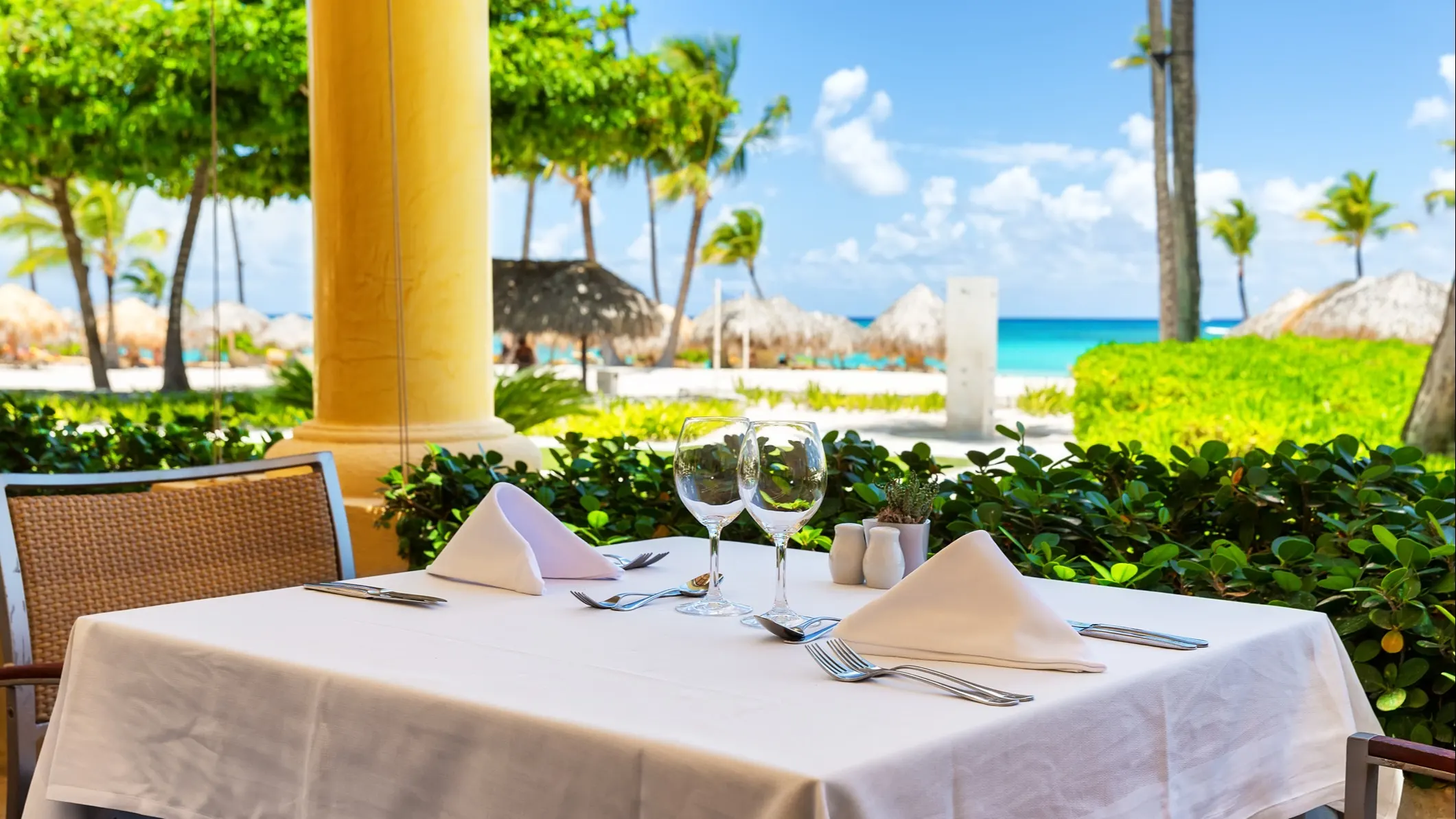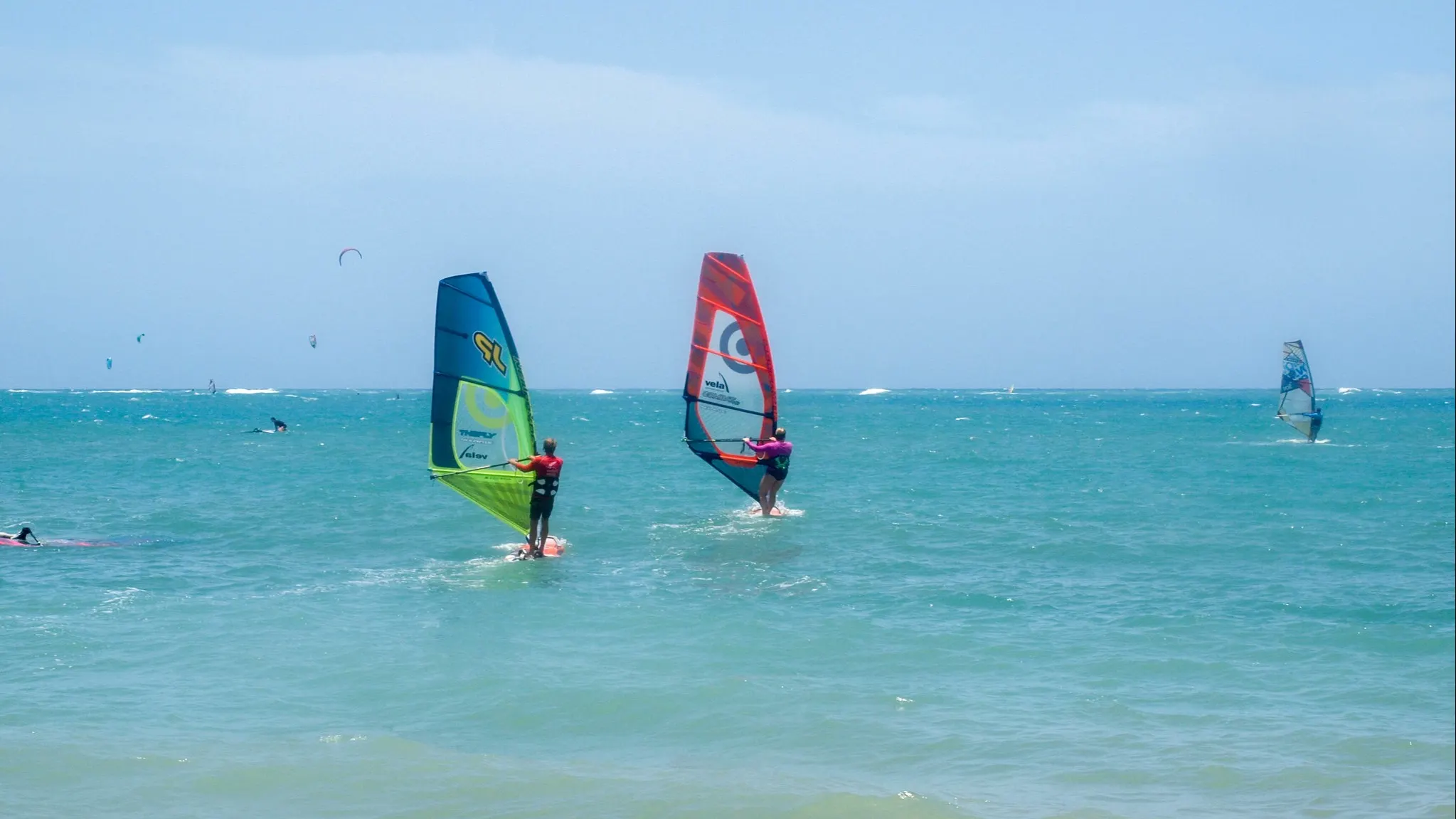The Dominican Republic is part of the second largest Caribbean island, Hispaniola. The DR takes up roughly two thirds of the island, with the other third being Haiti.
The Dominican Republic is an attractive place to retire, as the cost of living is much less than in North America and Europe, while many people also come just for the winter months, enjoying the year-round tropical climate. In addition, there are direct flights to North America and Europe, and with six international airports, it’s easy to get to any part of the country. There is good internet, cable and satellite television in English, and good healthcare, along with international supermarkets and a thriving expat population.
Due to its size, the Dominican Republic consists of much more than purely beaches, even though there’s over 1,000 miles of coastline. The interior of the country is very diverse, with mountain ranges, fertile plains, deserts, and rainforests. The highest mountain range in the Dominican Republic—indeed, in the whole of the Caribbean—is in the Cordillera Central, with Pico Duarte being the highest peak at 10,164 feet.
Expats on the whole tend to live where other expats live, which is in the north of the country, Puerto Plata, Sosúa, and Cabarete. These towns offer international supermarkets, gated communities, and several international restaurants, along with excellent healthcare. However, the new boom area is the east coast, Punta Cana and Bavaro, which has overtaken the north coast as the main tourist center and has a major international airport with more flights than the north. Over the past few years the number of amenities has increased dramatically in the east. There are also expats in the capital, Santo Domingo, and the second largest city, Santiago; however, they are more likely to be here for work rather than retirees. Las Terrenas and Samaná in the northeast peninsula are also home to several expats, especially French and other Europeans, although the number of Americans has been growing over recent years. There are also a growing number of expats who prefer the mountains to the beaches, and they can be found in the town of Jarabacoa in the center of the country.
In order to retire to the Dominican Republic, you are required to have Dominican residence. The process begins in the DR embassy in your home country where you provide a range of documents, including proof of retirement benefits of no less than $1,500 a month. The embassy then stamps your passport with a residence visa and you have 90 days to come to the country and upgrade it at the Migration Department to temporary residence. That is then renewed annually, and after four years it becomes permanent. When you obtain temporary residence you will also be issued with a Dominican identity card known as a cedula.
However, there are also issues that you need to be aware of. The Dominican Republic is in the developing world, and electricity can be sporadic, therefore many people invest in a back-up system of inverters or generators. While the healthcare is excellent and significantly cheaper than the U.S. it is advisable to take out health insurance. Finally, the language of the country is Spanish, and apart from the tourist areas, few people speak English. For those who live in the country it is important to at least be able to speak some Spanish, although Dominicans are a very friendly people and you are sure to find some who can help you with day to day tasks where speaking Spanish is necessary.
Seven Things for Expats to do in the Dominican Republic
The Dominican Republic is the most visited destination of all the Caribbean islands. And while it’s best known as a vacation destination—a place to unwind and let the stresses of the world melt away—some are making this tropical paradise their full-time home.
Two Dominican Republic coastal havens popular with expats are Cabarete and Las Terrenas. They’re culturally vibrant places where you’ll meet expats from more than 50 countries.
And in addition to meeting interesting people, you’ll find plenty of enjoyable and interesting things to do here, such as:
Relax on the Beach
Dominican beaches are among the best on earth. Imagine pressing your feet into fine warm sand. Or feeling tropical water pass and swirl around your body. And after your swim, noticing how the palm fronds dance lightly in the breeze just before dozing off in your beach lounge. Even beach snobs, who’ve been everywhere and done it all, extol the beaches of the Dominican Republic.
And there’s more than one way to relax on the beach here. For some, it’s an early-morning walk with their dogs. For others, it’s sharing a late afternoon snack or drink with companions and new friends in one of the many on-the-beach restaurants and bars.
Enjoy Fine Dining

Among the expats coming to the Dominican Republic are chefs from many parts of the world. So you can anticipate fresh Italian pastas, French sauces, Spanish tapas, German sausages, and Argentine-style steaks, as well as wholesome local staples like rice and beans with chicken and a salad.
Cooks here have ready access to fresh local sea bass, red snapper, dorado, and sometimes tuna, as well conch, lobster, and shrimp. Produce grown in the Dominican Republic includes avocados, pineapple, bananas, passion fruit, mangos, papayas, Pomegranates, starfruit, tamarindo, guava, coconuts, limes, oranges, grapes, and cashews. You’ll also find locally grown coffee and excellent chocolate made from organic Dominican cocoa.
Learn to Dance the Merengue
The Merengue originated in the Dominica Republic. It’s a sensual dance that’s easy to learn. In fact, there’s a saying: if you can walk, you can learn to dance the Merengue. So let’s give it a try right now: The main step is to the side. Step to the side—close—step to the side—close. Let your hips move as you step. Lead your side movement with your ribcage. Now, keep time with the music… You’ve got it.
Take to the Trails
The lush mountainous terrain of the Dominican Republic has interesting small roads, paths, and trails. Some lead to caves and waterfalls you can reach hiking or on horseback. In the Cabarete area, you’ll find mountain bike trails. In Las Terrenas, many expats get around, both in town and rural jungle paths, on ATV quads.
Take to the Water

Water sports are big in the Dominican Republic. Some expats make a daily swim in the sea a part of their island-life routine. You’ll find kitesurfing in many parts of the Dominican Republic, with some of the best conditions in the world for the sport in Cabarete. Also near Cabarete is Encuentro Beach, home to the best board surfing in the country. And there’s good scuba diving and snorkeling in many parts of the country, too.
Learn Spanish
There are enough English-speaking expats and bilingual locals in the Dominican Republic that you could get by without learning any Spanish. However, learning some Spanish can be fun and will make your life easier. Besides that, the Dominican culture is an especially pleasant one. And it’s definitely worth the effort to learn some Spanish so you can show respect and interact.
One way to learn Spanish is to hire a local teacher. Another way is to study with an online home course and then practice when you’re out playing or running errands. Once you learn the basics, you can often work out a trade helping a local with her English in exchange for her helping you with your Spanish.
Start a Business
While many expats in the Dominican Republic are content to fill their days relaxing on the beach, practicing a sport, and dining with friends; others, seeking a deeper level of community interaction and an income, start businesses.
Most of the businesses in the Dominican Republic successfully run by North American expats are tourism related. They include running a small hotel, starting a restaurant, or setting up a tour company. Many expats have also realized good returns buying and renting out vacation properties.





